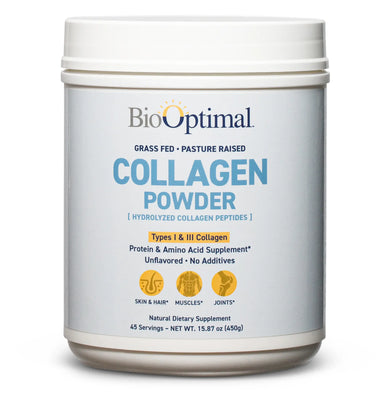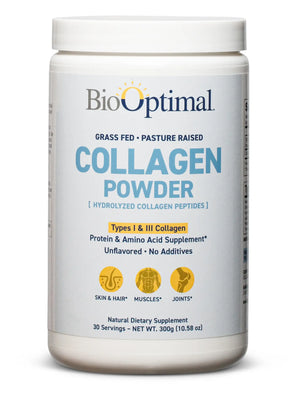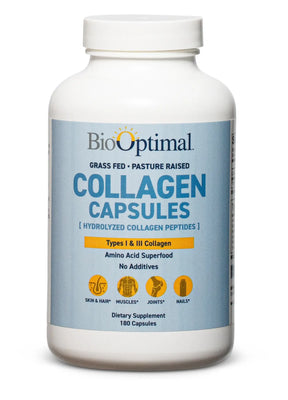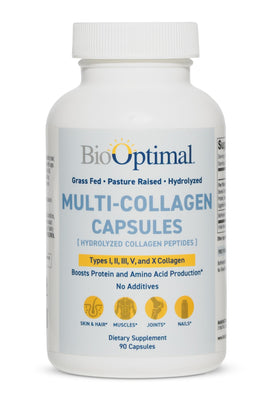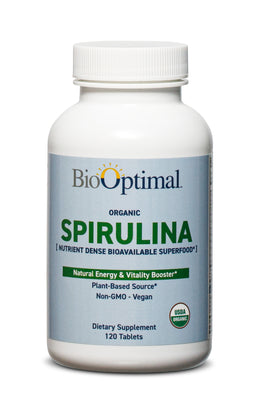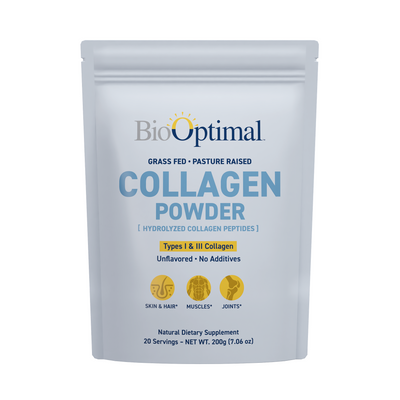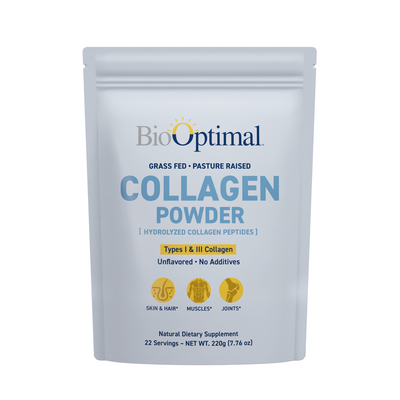Table of Contents:
In beauty and wellness, collagen and keratin are two powerhouse proteins often discussed for their beneficial properties. While both are crucial for maintaining healthy skin, hair, and nails, they serve different bodily functions. Collagen primarily supports skin elasticity, joint health, and overall structural integrity. It acts as a scaffolding for our tissues, helping to maintain firmness and hydration.
On the other hand, keratin is a fibrous protein that forms the protective structure of hair, skin, and nails. It provides strength and resilience, making it essential for hair growth and preventing breakage.
Choosing between collagen and keratin depends on your specific needs and goals. In this blog, we will learn about the key differences, benefits, and ideal uses for each protein, helping you decide which is better for your beauty and wellness journey.
What Is Collagen?

Collagen is a crucial protein naturally produced in the body that forms the basic structure of our skin, bones, tendons, and connective tissues. It serves as a structural framework, providing strength, elasticity, and support to various tissues. Our natural collagen diminishes as we age, leading to signs of aging such as wrinkles and joint discomfort. Collagen supplements, derived from bovine or marine sources, have gained popularity to replenish this essential protein, promoting overall health and vitality.
Benefits Of Collagen
-
Skin Health—Collagen is crucial in maintaining skin elasticity and hydration. By supplementing collagen, many individuals notice reduced wrinkles and fine lines.
- Joint Support—This protein contributes to better cartilage health and cushions joints. Regular intake may alleviate joint pain and stiffness, making it beneficial for those with arthritis or active lifestyles.
- Bone Strength- As a critical component of bone structure, collagen helps maintain bone density. Supplementing collagen can support bone health, especially as we age.
- Hair and Nail Growth—Collagen can uplift the strength of hair and nails, inducing growth, reducing brittleness, and promoting overall vitality.
What Is Keratin?

Keratin is a fundamental structural component of hair, skin, and nails. It forms a protective barrier, providing strength and resilience to these tissues. Keratin is categorized into two types: soft keratin, found in skin and hair, and hard keratin, which is present in nails. It maintains the integrity of these structures and prevents environmental damage and moisture loss. Many hair care products now incorporate keratin to improve shine, strength, and overall hair health.
Benefits Of Keratin
- Hair Strengthening- Keratin treatments can significantly improve hair strength, reducing breakage and split ends. By replenishing lost keratin, hair becomes more resilient to damage from heat and styling.
- Smoothing and Frizz Control- Keratin can smooth the hair cuticle, resulting in a shinier appearance and less frizz. This is especially beneficial for those with wavy or curly hair.
- Better Elasticity—Keratin uplifts hair's elasticity, allowing it to stretch without breaking. This is crucial for maintaining hair's overall health and appearance.
- Improved Nail Health- Besides hair benefits, keratin strengthens nails, preventing chipping and breaking. This helps achieve longer, healthier nails.
How does Collagen and Keratin Work for the Body?
Collagen and keratin are essential proteins that support skin, hair, nails, and overall structural integrity. While both contribute to strength and resilience, they have distinct roles, structures, and absorption processes.
Molecular Structure: Collagen vs. Keratin
Collagen and keratin are structural proteins but differ in composition and function.
Collagen has a unique triple-helix structure, making it strong and flexible. It consists mainly of the amino acids glycine, proline, and hydroxyproline, which help form stable collagen fibers. These fibers provide tensile strength to connective tissues like skin, tendons, and cartilage. Collagen is classified into different types, with Type I, II, and III being the most abundant in the human body.
Keratin is a filamentous protein rich in cysteine, an amino acid that forms strong disulfide bonds. These bonds create a rigid and insoluble structure, giving keratin its toughness. There are two types: soft keratin, found in skin, and hard keratin, found in hair and nails. The higher the sulfur content, the stronger the keratin, which is why nails and hair are more durable than skin.
How Collagen Works in the Body
Collagen provides structural support to skin, bones, cartilage, tendons, and ligaments. It helps maintain skin elasticity, promotes joint health, and aids in wound healing.
Collagen and Protein Synthesis
The body produces collagen through protein synthesis, converting amino acids like glycine and proline into collagen fibers. Vitamin C is crucial in this process, supporting collagen stability and function.
Collagen Absorption
Collagen is broken down into peptides and amino acids during digestion. Hydrolyzed collagen, or collagen peptides, is more bioavailable and easily absorbed into the bloodstream, where it helps stimulate natural collagen production.
How Keratin Works in the Body
Keratin is a protective protein that strengthens the outermost skin, hair, and nail layers. Unlike collagen, keratin is more rigid and provides resistance to mechanical stress.
Keratin and Protein Synthesis
Keratin production relies on protein synthesis in specialized cells called keratinocytes. The presence of sulfur-rich amino acids like cysteine forms disulfide bonds, reinforcing keratin’s structure.
Keratin Absorption
Unlike collagen, keratin is not easily absorbed through digestion. Instead, the body produces keratin internally from dietary proteins. Due to poor bioavailability, keratin supplements are less effective than collagen peptides.
Protein proteins are vital for maintaining healthy skin, hair, and nails, but collagen supports more profound structural integrity, while keratin is a protective barrier.
What Are The Differences Between Collagen And Keratin?
They understand the distinct roles of collagen and keratin. It is essential to make informed choices about health and beauty products, as each protein offers unique benefits tailored to specific needs. Let's explore their differences in detail.
Structural Composition
Collagen and keratin are both essential proteins, but they have different structures and functions within the body. Collagen forms a dense network, strengthening and supporting connective tissues, skin, and bones. It consists of three polypeptide chains twisted into a triple helix, contributing to its strength and elasticity. In contrast, keratin is a tough, fibrous protein primarily found in hair, nails, and the outer layer of skin. It comprises an amino acid chain that forms a helical structure, providing durability and resistance to wear and tear.
Function and Benefits
While both proteins play critical roles in maintaining the body’s integrity, their functions differ significantly. Collagen is vital for skin elasticity, joint health, and overall structural support. Supplementation helps with skin hydration and reduces wrinkles. On the other hand, keratin is primarily concerned with protection and resilience. It maintains the strength of hair and nails, offering a barrier against environmental damage.
Source and Supplementation
Collagen is commonly sourced from animals like cows and fish, while keratin is often derived from human hair or animal sources. Collagen supplements improve skin and joint health, whereas keratin treatments are designed to strengthen and smooth hair. Understanding the differences helps individuals choose the right products based on their health and beauty needs.
What Are The Different Types Of Supplements?
Collagen and keratin supplements come in various forms, including capsules, powders, and natural food sources. Choosing the right supplement depends on bioavailability, dietary preferences, and specific health goals.
Capsules vs. Powder
- Capsules are convenient and pre-measured, making them easy to include daily. However, they may take longer to digest than powders.
- Powder supplements are often hydrolyzed for better absorption. They can be mixed into drinks or smoothies, providing a flexible consumption option.
Natural Sources of Collagen and Keratin
Natural sources of collagen include bone broth, fish skin, chicken cartilage, and egg whites. These foods provide structural support from collagen, helping maintain skin, joints, and connective tissues.
Natural sources of keratin include eggs, fish, lean meats, and sulfur-rich vegetables like garlic and onions. These foods support the protective function of keratin for strong hair, nails, and skin.
Choosing the Right Supplement
Consider bioavailability, ingredient quality, and additional nutrients when selecting a supplement. Factors to consider in supplements include the presence of additives, dosage recommendations, and whether they align with your dietary needs. Always check for high-quality sourcing to maximize benefits.
Which Is Suitable For Your Skin Or Hair Type?

Choosing between collagen and keratin largely depends on your skin or hair concerns.
For Skin: If you're focused on better skin elasticity and hydration and youthfulness, collagen is your best bet. Collagen supplements can help improve skin firmness and moisture, making them suitable for dry or mature skin types.
For Hair: If your primary concern is hair health, particularly strength and manageability, keratin is the better choice. Keratin treatments can smooth frizz, reduce breakage, and impact shine, making them particularly beneficial for individuals with wavy, curly, or damaged hair.
If you have sensitive scalp issues, choose products specifically formulated to be gentle. Ultimately, assessing your needs will guide you toward the suitable protein, ensuring your beauty routine effectively addresses your skin or hair type.
Do We Need Both?

Incorporating collagen and keratin into your beauty regimen can provide comprehensive benefits for your skin and hair. Collagen improve skin elasticity and hydration, helping to reduce wrinkles and maintain a youthful appearance. Meanwhile, keratin strengthens hair, making it resilient and shiny while reducing frizz.
Both proteins can lead to healthier skin and hair as they address different concerns. For those looking to improve overall beauty and wellness, supplements or treatments containing collagen and keratin can be a powerful combination, promoting a holistic approach to maintaining vibrant skin and luxurious hair.
Scientific Research On Benefits Of Keratin And Collagen
Scientific studies highlight the benefits of keratin and collagen for skin, hair, nails, and overall structural health. Research suggests personalized keratin treatments can improve hair strength and elasticity, while personalized collagen treatments support skin hydration and joint health.
Expert Opinions on Keratin and Collagen Supplements
Expert opinions on keratin supplements indicate that while keratin can strengthen hair and nails, its absorption through digestion is limited. Many researchers recommend consuming natural sources of keratin, such as eggs, fish, and sulfur-rich vegetables, to support the body’s natural keratin production.
Expert opinions on collagen supplements suggest hydrolyzed collagen powder is the most bioavailable form, helping improve skin elasticity and joint function. Capsules offer a convenient option but may take longer to absorb. Natural sources of collagen, like bone broth and fish skin, are also effective.
Choosing the Right Supplement
Consider bioavailability, ingredient quality, and additional nutrients when selecting a supplement. Factors to consider in supplements include third-party testing, dosage, and potential allergens. Research-backed formulations can help maximize skin, hair, and joint health benefits.
Wrapping Up
In summary, collagen and keratin play vital roles in maintaining the health and appearance of your skin and hair, but they serve distinct purposes. Collagen increases skin elasticity and hydration, while keratin provides strength and protection for hair and nails. Understanding your needs help determine the protein benefits you need the most, and incorporating both into your routine can offer comprehensive benefits.
For those looking to improve their health regimen, BioOptimal offers high-quality collagen supplements to support your unique health goals. Our products come from premium ingredients and undergo rigorous testing to ensure purity and effectiveness. Whether aiming for youthful skin or resilient hair, BioOptimal has the perfect solution for you. Find out about the transformative power of collagen and keratin with BioOptimal today—your journey to optimal health and beauty starts here!
FAQ
1. What are the main differences between keratin and collagen?
Keratin is a protein primarily found in the hair, skin, and nails, crucial in their strength and appearance. Collagen, on the other hand, is a structural protein found in connective tissues throughout the body, vital for skin elasticity, joint health, and overall structural support. While keratin is key for strong, shiny hair and nails, collagen focuses on skin elasticity, hydration, and reducing aging signs.
2. What are the benefits of using keratin on hair?
Keratin treatments offer several benefits for hair, including smoother strands, reduced frizz, enhanced shine, and protection against heat damage. It strengthens hair, making it more resilient to external factors and helping maintain its texture and appearance.
3. How does collagen benefit the skin?
Collagen is renowned for its anti-aging effects, improving skin elasticity and firmness, hydrating the skin, and reducing wrinkles and fine lines. Boosting collagen levels helps maintain youthful, plump, and radiant skin, effectively addressing aging signs.
4. Can I use keratin and collagen if I have combination skin and hair issues?
Yes, using keratin and collagen can benefit those with combination skin and hair issues. Keratin can address dry and damaged hair by restoring strength and shine, while collagen can target mature or aging skin to enhance elasticity and reduce wrinkles. Experimenting with both can help you achieve optimal results for both hair and skin.
5. How often should I use keratin and collagen treatments for the best results?
The frequency of keratin and collagen treatments can depend on your needs and the products used. Generally, keratin treatments for hair might be used about once a week, while collagen supplements or skincare products could be incorporated daily. Always follow the product instructions for usage frequency and application tips to ensure the best outcomes for hair and skin health.


